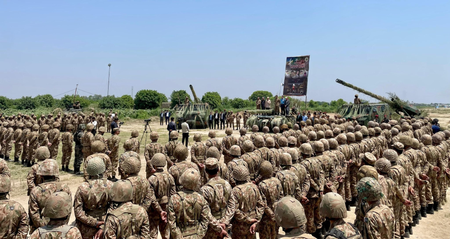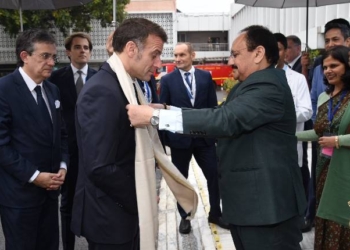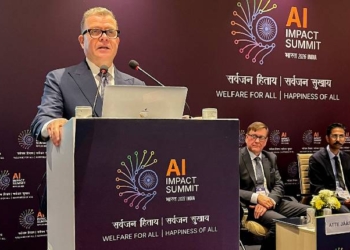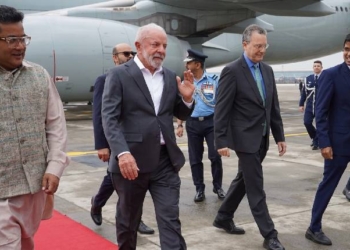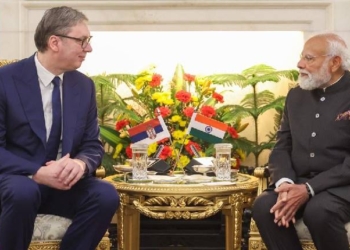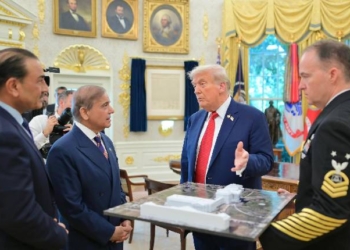New Delhi: In a region long afflicted by insurgency and instability, Pakistan’s military establishment has emerged not merely as a participant, but as a principal architect in the deliberate orchestration and international projection of terrorism. Far from being a collateral consequence of geopolitical upheaval, Pakistan’s facilitation of terrorism is a calculated, institutionalised component of its strategic doctrine—an enduring pillar of statecraft. From sheltering global jihadist organisations to now allegedly utilising ISIS to target both the Afghan Taliban and Baloch rebels, Pakistan’s military-intelligence complex has evolved proxy warfare into a systemic geopolitical instrument.
Recent intelligence assessments from Afghan and Western security officials highlight a deeply unsettling trend: factions within Pakistan’s Inter-Services Intelligence (ISI) are reportedly enabling elements of the Islamic State-Khorasan Province (ISIS-K) to undermine the Taliban regime.
Since the Taliban’s reassertion of power in 2021, relations with Islamabad have deteriorated—primarily over disputes concerning the Durand Line and the Taliban’s sheltering of Tehrik-i-Taliban Pakistan (TTP) operatives. In response, Pakistan appears to be recalibrating its approach—weaponising ISIS-K to destabilise Taliban rule and re-establish influence in Kabul.
This is not a product of conjecture. A series of ISIS-K attacks against Taliban figures and Afghanistan’s Shia minorities have reportedly been linked to training centres and safe zones within Pakistan’s Khyber Pakhtunkhwa and Balochistan provinces. Afghan intelligence authorities have consistently accused the ISI of facilitating the logistical operations of ISIS-K, enabling cross-border movements, and covertly supporting actors opposed to Taliban authority. The Taliban government itself has issued public statements alleging that ISIS operatives infiltrating their territory do so with the backing of foreign intelligence agencies—an implicit reference to Pakistan. Simultaneously, Balochistan remains engulfed in a protracted and brutal conflict. The Baloch rebellion, driven by long-standing economic marginalisation and violent repression, has intensified in recent years. Yet, rather than addressing these deep-rooted grievances, the Pakistani military has responded with increased militarisation and a particularly disturbing tactic: deploying jihadist groups, including Lashkar-e-Jhangvi and militants linked to ISIS, against secular Baloch nationalist leaders. In numerous instances, Baloch activists and combatants have been assassinated or abducted by groups publicly aligned with ISIS, only for subsequent intelligence to expose their connections to ISI operatives through intercepted communications and insider testimonies.
The manipulation is systematic. By deploying jihadist proxies, the Pakistani military achieves plausible deniability, evades international censure, and delegitimises the Baloch movement by associating it with religious extremism. This strategy is not novel—it is an extension of a doctrine that has been honed for over forty years. During the 1980s, Pakistan’s military and the ISI constructed a vast proxy network of extremist groups to project influence, acquire strategic depth, and suppress domestic dissent.
The U.S.-backed jihad against the Soviet Union in Afghanistan served as the prototype. Billions in American and Saudi funds were channelled through the ISI to support mujahideen fighters—many of whom later evolved into the Taliban and al-Qaeda. This infrastructure did not dissipate with the end of the Cold War; it was repurposed. In Indian-administered Kashmir, the ISI actively cultivated groups such as Lashkar-e-Taiba (LeT) and Jaish-e-Mohammed (JeM), responsible for some of the most egregious terrorist incidents in India, including the 2001 Indian Parliament attack and the 2008 Mumbai massacre.
Hafiz Saeed, founder of LeT and designated a global terrorist by the UN and the U.S., has operated openly within Pakistan for years, organising mass rallies and running charitable fronts that double as recruitment hubs. The scale of this state-terrorism nexus is staggering. A 2023 Financial Action Task Force (FATF) report observed that Pakistan still harbours more than 40 UN-designated terrorist entities, many of which continue to enjoy unimpeded movement, fundraising capacity, and operational latitude. Islamabad has made surface-level arrests and account freezes to avoid sanctions, yet its deeper strategic sponsorship remains untouched.
This duality—supporting terrorism while simultaneously portraying itself as a victim—has become Pakistan’s geopolitical hallmark. Domestically, Islamist groups are weaponised to suppress dissenting journalists, intellectuals, and minority communities. On the international stage, terrorism is wielded as a tool of state influence. Whether confronting the Taliban in Kabul, fomenting unrest in Kashmir, or directing ISIS-linked operations in Balochistan, the ISI’s unseen influence is a constant. Global counterterrorism efforts have failed to dismantle this duplicity. Osama bin Laden’s presence mere kilometres from Pakistan’s premier military academy in Abbottabad starkly revealed Islamabad’s lack of sincerity in combating terrorism. This pattern persists, evident in the state’s bifurcation between “bad terrorists” (who attack Pakistan) and “good terrorists” (who serve strategic interests).
What renders this strategy especially perilous in 2025 is the shifting geopolitical landscape. With China deepening its regional engagement via the China-Pakistan Economic Corridor (CPEC), Beijing is increasingly alarmed by the instability in Balochistan. Yet, rather than curtail militant violence, Pakistan’s military has escalated its reliance on extremist proxies to suppress opposition and secure Chinese investments—transforming CPEC into a corridor shadowed by systemic violence. The global community must cease its indulgence of Pakistan’s duplicitous stance on terrorism. The military’s entrenchment of terror as a tool of foreign and domestic policy has rendered South Asia a continual theatre of conflict, with reverberations reaching as far as Europe and North America. Continued Western support—whether in the form of aid, weaponry, or diplomatic concessions—only serves to embolden Pakistan’s militarised deep state.
Pakistan is not a casualty of terrorism—it is among its principal architects. Unless the international community acknowledges this reality and responds with decisive measures—targeted sanctions, terror designations, and a withdrawal of support—the region will remain hostage to a military that thrives in ambiguity, playing a lethal double game at immense human cost.
(IANS)




